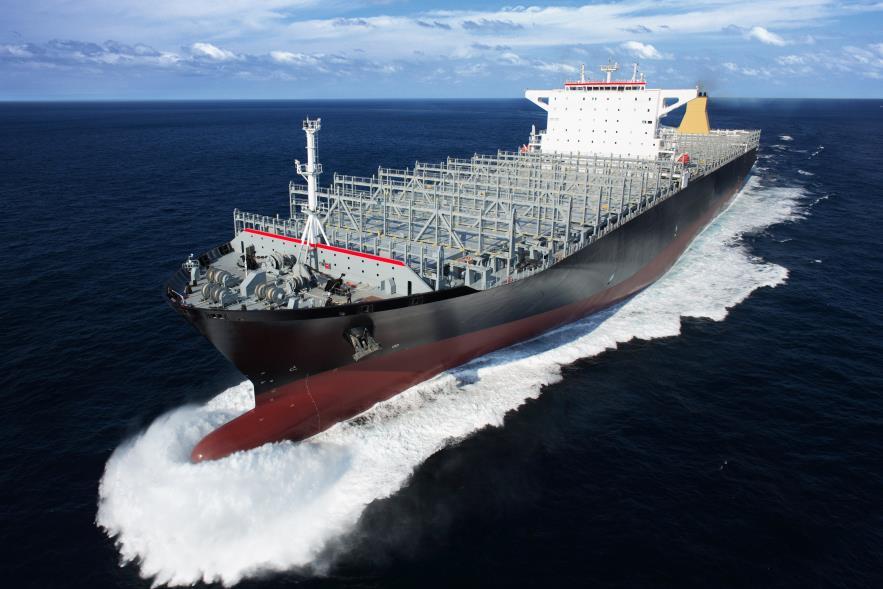S. Korean shipbuilders stand out amid eco-friendly gas-fueled vessel demands
Korean firms account for majority in global orders, outrun Chinese rivals
By Bae HyunjungPublished : March 17, 2021 - 17:10

After years of sluggish market trends, South Korea’s shipbuilding industry is now warming up on the back of increased demand for eco-friendly gas-fueled vessels in the post-coronavirus era, data showed Wednesday.
According to Clarksons Research, the leading information provider for global shipping, orders have been made for 254 ships so far this year, of which gas-fueled vessels account for 54 units or 21.3 percent. That figure was 10.1 percent in 2019 and 14.9 percent in 2020.
Also, out of the 54 gas-fueled vessel orders, Korean shipbuilders won 40 of them, or 74.1 percent, demonstrating its market dominance in the eco-friendly product category. The market share of Asia’s fourth-largest economy in the sector previously stood at 48.2 percent in 2019 and 47.8 percent in 2020.
Gas-fueled vessels, operated on liquefied natural gas or liquefied petroleum gas, are increasingly substituting the conventional bunker oil-fueled carriers -- reflecting the tightening environmental regulations. The gas-fueled models are marked for their relatively low emission of sulfur oxide, nitrogen oxide, microfine dust and carbon dioxide, compared to bunker oil-fueled models.
While gas carriers mostly switched to the more eco-friendly gas-fueled types, container ships and oil tankers have been following suit over recent years.
Of the 54 gas-fueled vessels ordered so far this year, 37 were non-gas carriers, accounting for an unprecedented 68.5 percent, data showed.
The key drive of the transition was the International Maritime Organization’s new rule to lower the ceiling of sulfur content in ship fuel to 0.5 percent, drastically down from the previous 3.5 percent.
“The challenge for shipbuilders is that gas-fueled vessels require a higher level of shipbuilding technology, such as an ultralow temperature maintenance system for fuel tanks,” said an official of a major shipbuilder here.
This barrier to entry is acting in favor of Korean companies, especially against Chinese rivals, the official added, citing a recent case of a Chinese shipbuilder failing to deliver the order timeline of its LNG-fueled container vessel for a French client.
“The increasing demand for gas-fueled vessels will boost the Korean shipbuilders’ credibility in the global market and also contribute to business showings as they are priced 10-20 percent higher (than regular ships).”
By Bae Hyun-jung (tellme@heraldcorp.com)








![[KH Explains] Hyundai's full hybrid edge to pay off amid slow transition to pure EVs](http://res.heraldm.com/phpwas/restmb_idxmake.php?idx=644&simg=/content/image/2024/04/18/20240418050645_0.jpg&u=20240419100350)






![[From the Scene] Monks, Buddhists hail return of remains of Buddhas](http://res.heraldm.com/phpwas/restmb_idxmake.php?idx=652&simg=/content/image/2024/04/19/20240419050617_0.jpg&u=20240419175937)

![[KH Explains] Hyundai's full hybrid edge to pay off amid slow transition to pure EVs](http://res.heraldm.com/phpwas/restmb_idxmake.php?idx=652&simg=/content/image/2024/04/18/20240418050645_0.jpg&u=20240419100350)

![[Today’s K-pop] Illit drops debut single remix](http://res.heraldm.com/phpwas/restmb_idxmake.php?idx=642&simg=/content/image/2024/04/19/20240419050612_0.jpg&u=)